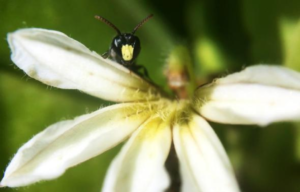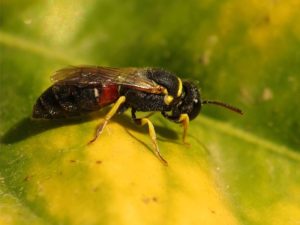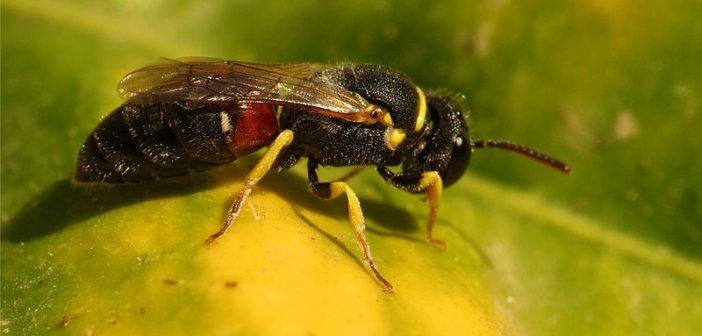
Photo by Jason Graham, University of Hawaii-Manoa, retrieved from National Geographic

According to National Geographic, large numbers of yellow-faced bees once thrived in Hawaii, but have significantly decreased due to environmental stressors.
Photo Credits: Photo by Katja Schulz, retrieved from Wikipedia commons
Last Oct., the United States Fish and Wildlife conservation officially listed yellow-faced bees as endangered, according to Amy B. Wang of The Washington Post. Wang reports that the Endangered Species Act (ESA) will work to conserve and safeguard all seven species of yellow-faced bees, which originate in Hawaii.
According to the National Wildlife Federation (NWF), U.S. Fish and Wildlife Services determine if a species should be considered endangered based on factors, such as habitat loss or destruction, severe threats from disease, predation, human exploitation, and whether or not there are sufficient legal measures already in place to protect the species.
The NWF also stated that the ESA provides “special protections by the federal government” for those species listed as endangered, as the ESA focuses on restoring healthy populations of endangered species.
Dr. Christopher Miller, an associate professor of biology at Saint Leo University, offered several explanations that may contribute to the bees’ decline.
“It’s complex. There might be multiple causes. A lot of people are pointing the finger to a certain class of pesticides called neonicotinoids,” said Miller. “[These are] classic chemicals that we use as pesticides, but it has the unfortunate consequence of also killing bees and other pollinators.”
However, Miller clarified that this is just one of many possible contributing factors. As other bee species are decreasing as well, he explained, “There’s something on a big level going on out there. That’s rather terrifying.”
Miller believed that the decline of bees cannot simply narrow down to one specific cause, such as pesticides or parasitic mites. Rather, he emphasized that this is a broader problem, and that large-scale factors, like climate change and habitat loss, may contribute to the bees’ decline.
When asked about solutions, Miller explained the European Union has placed a cautionary ban on neonicotinoids, but for issues, like climate change and habitat destruction, what he called “a shift in society” needs to happen.
Miller explained the main costs are economic, moral, and environmental losses, which could threaten the world in the absence of bees.
He explained that bees, as pollinators, play a key role ecologically and economically; many farmed crops, such as orchard trees, and naturally growing flowered plants rely on bees to reproduce. Without bees, crop prices would rise as farms would have to find a new, artificial way to pollinate their plants. As for the natural environment outside of farming, many plants would suffer and decrease as well.
“We also don’t know what role bees are playing necessarily in an ecosystem beyond just being pollinators,” explained Miller. “They might have other roles. They might be serving as a prey species for something, and you never want to remove the parts of ecosystems because you don’t always know what their function is.”
Similarly, the NWF explained on their website that extinction can’t be undone and it can pose severe ecological consequences.
“Once they are gone, they are gone forever and there is no going back. Losing even a single species can have disastrous impacts on the rest of the ecosystem, because the effects will be felt throughout the food chain,” according to NWF.
Regardless of the bees’ uses, benefits, and necessary ecological role, Miller said the species has “inherent value.”
“The loss of a species is a cost unto itself, even if the species doesn’t necessarily provide an immediate benefit to humans,” said Miller.





